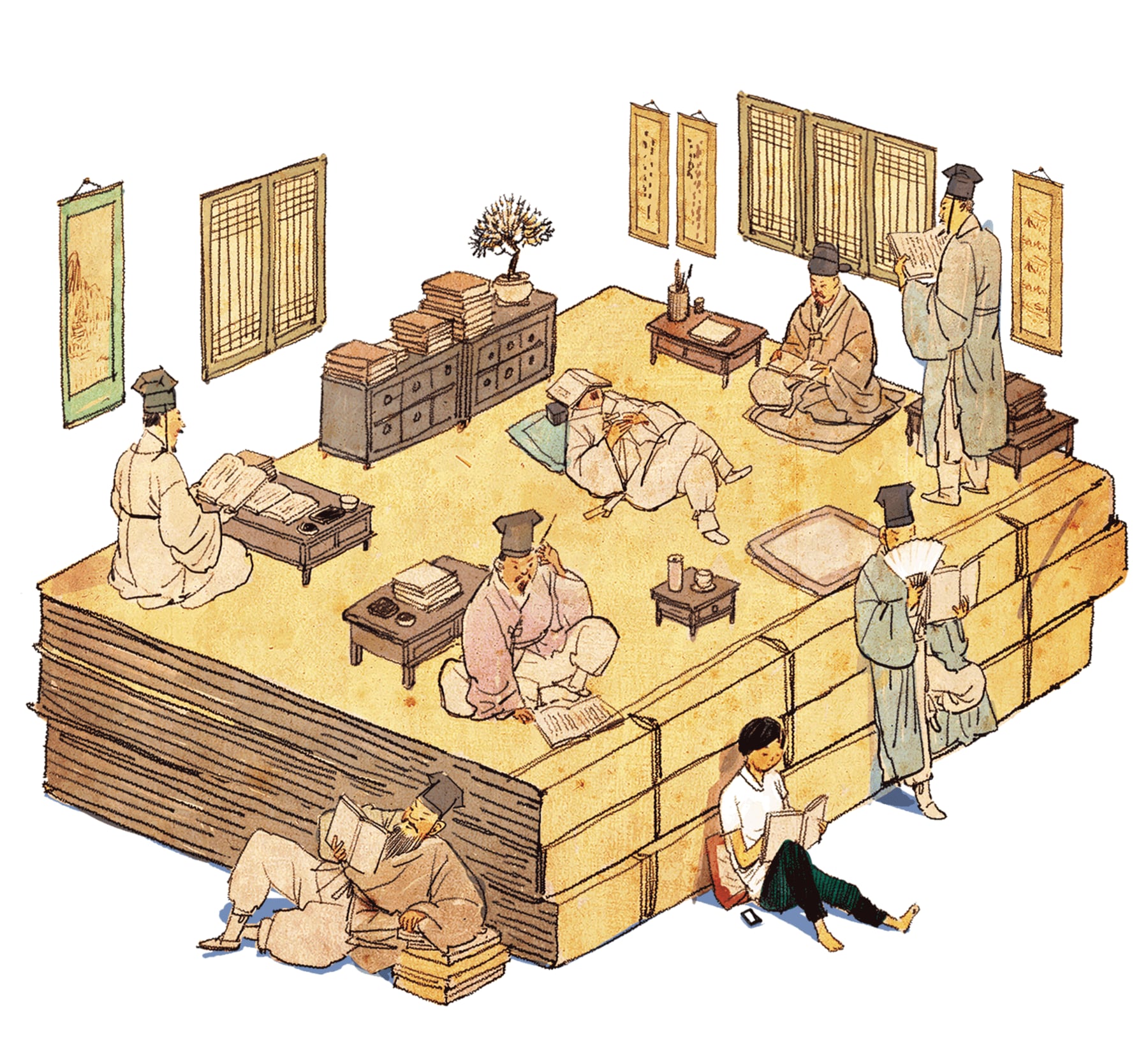Judul : Text-hip? A lame label for book lovers
link : Text-hip? A lame label for book lovers
Text-hip? A lame label for book lovers

Do you know what text-hip is? It’s a combination of the word “text,” meaning book, and “hip,” meaning cool. The first person to tell me about text-hip said it with a hint of embarrassment: “Text-hip? I heard there’s such a thing.” I could sense their discomfort at having to pronounce something awkward. We laughed together, probably because we’re both tormented by books. Books occupy the largest area of my home, making me feel like a tenant living in a house owned by books. Less than 20% of these books have been read, and many have never been opened. Some might never be read in my lifetime, yet I keep buying new ones. So books just keep piling up—and will continue to do so. To me, books are not hip but a burden.
Do I read books because they’re hip? Not at all. Somehow, I came to love books and dream of a life surrounded by them—reading daily, writing daily, and talking about books every day. Somehow, I achieved that dream. I read daily, don’t write daily, but think about books constantly, and talk about them every day. Yet unread books, unwritten works, and all the books around me feel like a burden. For someone like me, the term “text-hip” can only feel burdensome. I’m also curious: How did the term “text-hip” even start? Did they think labeling reading as hip would make people want to read? Does “text-hip” have any practical use?
I don’t know how much the term “text-hip” influences the spread of reading, but the world is attaching it everywhere. It’s booming in events related to Jeong Yak-yong, in overseas author invitations, and even in hotel promotions for “book-cations,” where you read books. I asked two non-writers if “text-hip” felt strange to them. P, who doesn’t read much but loves books, said, “Books are great, but the moment they’re called ‘text-hip,’ I don’t want to read them.” K, who works in publishing, replied, “The moment you write ‘text-hip,’ it looks really lame.” We laughed together, agreeing that nothing looks lamer than using “Reading books makes you look cool” as a slogan.

There’s no reason to read books. You read because you’re curious, because it’s fun, or because you like it. Sometimes, you just read because you want to. It’s similar to not being able to clearly explain why you like someone. But when I hear “text-hip,” the books I’ve read feel weightless, and the time I spent reading them seems to fade. That’s why book lovers find the term uncomfortable. And “text-hip” is perplexing. Isn’t it a timeless truth that the moment something is labeled “hip,” it’s no longer hip? Once something becomes mainstream, it loses its rarity and becomes ordinary—how can that be hip? My stance on hipness in one sentence: What everyone calls hip is not hip.
The important thing is to find your own hipness. A glimpse of this can be seen along Dokseodang-ro, a road crossing from Hannam-dong to Geumho-dong. The street’s name comes from the historical institution Dokseodang, a reading hall. During King Sejong’s reign in the Joseon Dynasty, selected officials were granted reading leave (*sagadokseo*), allowing them to read at Dokseodang. *Saga* means “the court grants leave,” so *sagadokseo* translates to “reading leave.” Even before Dokseodang was built, officials were encouraged to read at their homes, Janguisaji near Changuimun, or Jingwansa on Samgaksan. Samgaksan is the old name for Bukhansan, and Changuimun still exists. Janguisaji, once near Segyeonjeong, has disappeared, but its dangganjiju (flagpole supports) remain within Segyeonjeong Elementary School.
Isn’t this fascinating? Not only was reading encouraged, but so were the places to read. The court-recommended spots were famous scenic areas. Samgaksan and Segyeonjeong were frequent subjects of *jingyeong sansuhwa* (real-view landscape paintings), and paintings like *Dokseodang Gyehoedo* show that Dokseodang, near Dokseodang-ro, was also picturesque. People read books amidst mountains and water—pursuing beauty. It was hipness in an era without the word “hip.” Those chasing “text-hip” today also pursue beauty. May they discover their own hipness through it.
Thus the article Text-hip? A lame label for book lovers
You are now reading the article Text-hip? A lame label for book lovers with the link addresshttps://www.unionhotel.us/2025/09/text-hip-lame-label-for-book-lovers.html
0 Response to "Text-hip? A lame label for book lovers"
Post a Comment